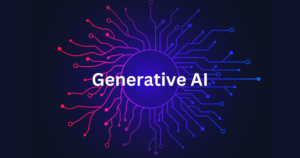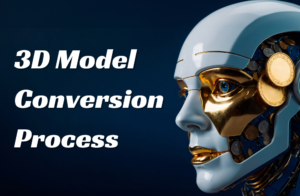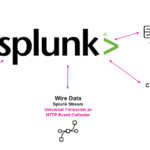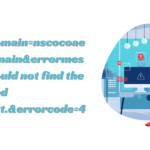AI Development Services Review on real AI examples
- 1 AI tools for app development
- 1.1 AI development solutions beyond text
- 1.2 AI Development Services: Claude AI, Danswer AI, and others
- 1.3 Integration Challenges and API Usage
- 2 Metrics and Comparison of AI to build an app
- 3 Future: AI Development Services in Custom App Development (2025)
- 4 Conclusion of the AI App Development Services Review
Current State, Future Prospects, and Comparison of chatGPT, Claude AI and other AI tools
The integration of AI systems into our daily lives and business operations is progressing at an unprecedented pace. As developers continuously launch new products and startups across various domains, companies increasingly join this technological marathon to stay competitive and innovative.
AI tools for app development
Among the innovative offerings in the market, we see systems for automatic source code generation and startups focused on processing legal documents. Many companies, including Diatom Enterprises – a well-known industry leader in AI Development Services, have primarily utilized open platforms like ChatGPT. Recently, there has been growing interest in exploring newer platforms to create apps like Claude AI.
AI development solutions beyond text
Modern AI systems demonstrate remarkable versatility:
- Document Analysis: AI can process and interpret complex accounting and legal documents, streamlining financial and legal operations.
- Image and Diagram Comprehension: Advanced AI models can analyze visual data, including project architecture diagrams, providing insights and facilitating a better understanding of complex visual information.
- Multi-modal Analysis: By combining text and visual analysis capabilities, AI systems offer comprehensive insights across various data types, enhancing business decision-making processes.
- AI Assistance: The AI development market sees new systems working as AI assistants.
AI Development Services: Claude AI, Danswer AI, and others
Claude AI, a contemporary system, offers several advantages in custom software development:
- Technical Documentation: Assistance in creating comprehensive and accurate technical documentation.
- Architecture Support: Helping developers conceptualize and design software architecture.
- Code Generation: Capability to produce both basic and specific code for projects.
However, the enterprise adoption of such systems faces challenges:
- Local Deployment: There’s a growing demand for AI systems that can be deployed within a company’s local ecosystem, such as Danswer or PrivateGPT. These allow businesses to train Language Learning Models (LLMs) in specific directions relevant to their needs.
- Limitations of Pre-trained Models: While ChatGPT and Claude are pre-trained models, they can assist in setting up and training localized, manual AI systems for specific tasks like processing unique legal documents, customizing image generation (e.g., logo creation in a company’s style), or analyzing invoices for accounting systems.
Integration Challenges and API Usage
It’s important to note that chat interfaces like Claude and ChatGPT are frontend wrappers for powerful AI models accessible via APIs. These APIs form the backbone of AI integration in enterprise solutions:
API-based Integration: Both OpenAI (for ChatGPT) and Anthropic (for Claude) offer API access to their AI models. This allows for more flexible and scalable integration into existing systems.
Customizable Conversations: When using the API, developers can model the initial conversation manually, effectively “priming” the AI for specific tasks. This approach allows for more targeted and efficient use of AI capabilities.
Pricing Models: API usage is typically based on a credit system or token count. Pricing can vary based on the model used and the volume of requests. For example:
- OpenAI’s GPT-3.5 and GPT-4 APIs have different pricing tiers based on the model’s capabilities.
- Anthropic’s Claude API also uses a credit-based system, with pricing varying by model and usage volume.
Performance Considerations: While API integration solves some of the challenges associated with web-based chat interfaces, developers still need to consider the following:
- Rate limits and concurrent request limitations
- Latency, especially for real-time applications
- Managing context effectively to minimize token usage and improve response relevance
Data Privacy and Security: When integrating AI via APIs, companies must carefully consider data handling practices, especially when dealing with sensitive information.
By leveraging these APIs, businesses can create more robust, scalable, and customized AI solutions that go beyond the limitations of web-based chat interfaces.
Metrics and Comparison of AI to build an app
Objectively assessing the differences between systems like ChatGPT and Claude is challenging. Comparisons often rely on technical metrics such as price, speed, and quality (which can be subjective). Our software development company has an advantage in that field; we have grown our internal expertise in AI application development since we have many customers and different ways.
- How much resources do you need to spend to set up a test environment to evaluate the quality of AI for creating an app?
- How expensive will supporting an AI platform be during development and operation costs?
- How easy will it be to integrate an AI system to build an app?
- How the security of the system’s machine learning data and results is ensured
- What is the audience of companies involved in the platform’s development and support, and what are the prospects for using this platform in the near future?
Future: AI Development Services in Custom App Development (2025)
The impact of AI systems on custom software development is expected to be significant. A potential model for future development processes involves using a central AI (like ChatGPT or Claude) to orchestrate other specialized AI engines:
- System Concept Development: The central AI develops the project’s system concept and framework choices.
- Architectural Design: It generates prompts for AI systems specialized in creating architectural diagrams.
- Project Templating: The AI creates project templates and instructs tools like GitHub Copilot to build the project skeleton. Creating apps using AI nowadays is extremely popular.
This “AI orchestrator” model could allow developers to create projects in the company’s style with minimal manual input simply by providing high-level commands or even having the central AI generate these commands based on project requirements. Using ai to build an app is increasingly crucial in our software development world.
Conclusion of the AI App Development Services Review
As AI technology continues to evolve, its integration into business operations promises to drive efficiency, innovation, and competitive advantage across industries. However, deployment, training, and scalability challenges must be addressed for widespread enterprise adoption. The future of AI app development looks set to be dramatically transformed by AI, with the potential for significant automation and efficiency gains.
















